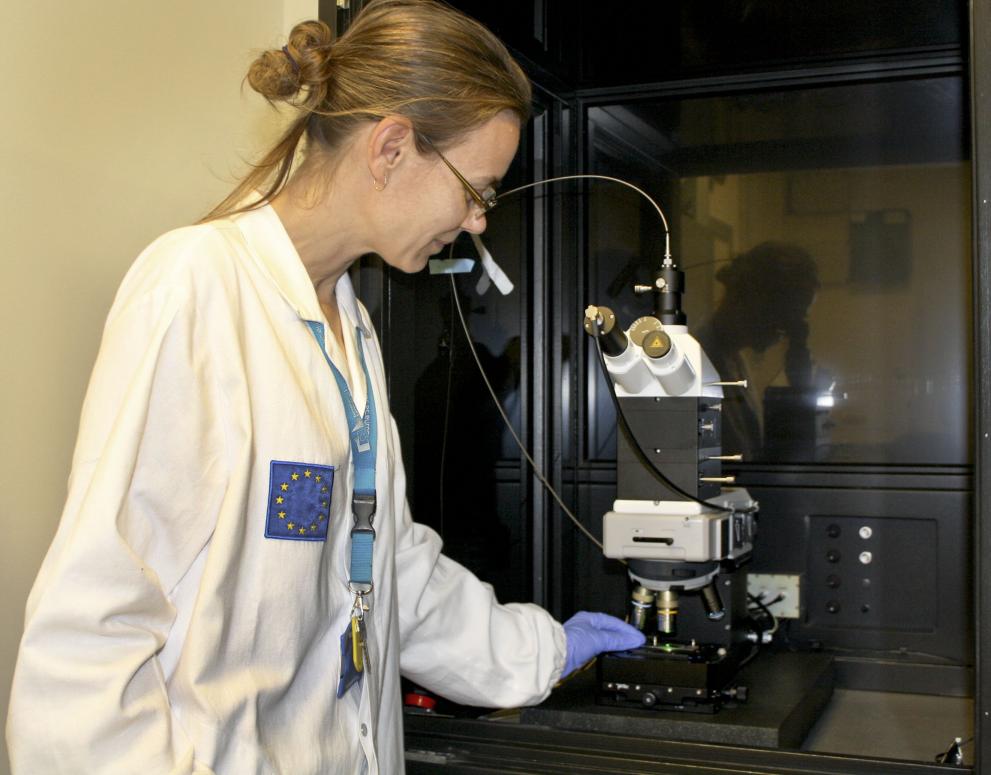
JRC scientists contributed to a study paving the way to an easy production of biohybrid photonic nanostructures by simply feeding diatoms microalgae with tailored photoactive molecules.
Biotechnological processes harnessing living organisms' metabolism are low‐cost routes to nanostructured materials for applications in photonics, electronics, and nanomedicine. Some living organisms have optimised their ability to generate photoactive components – essential for their survival – with macro- to nanoscale structures.
Therefore, nanostructured biomaterials represent a very promising alternative to their synthetic counterparts. In this respect, diatoms microalgae are attractive given the properties of the porous micro‐to‐nanoscale structures of the biosilica shells (frustules) they produce. They belong to a large and prolific class of single cell photosynthetic microalgae.
In close collaboration with Italian research organisations, JRC scientists investigated how tailored molecular fluorophores could be incorporated into the frustules of Thalassiosira weissfloggii diatoms. Raman and Time of Flight Secondary Ion mass Spectrometry (ToF-SIMS) analyses were applied to characterise the functionalised frustules of the diatoms.
This research may lead the way towards the creation of a new family of hybrid photonic materials that are cheap, biocompatible and biodegradable. It may also contribute to a route towards the creation of functional photonic nanostructures based on farming microalgae.
Read more in: P. Laux et al.: Hybrid Photonic Nanostructures by In Vivo Incorporation of an Organic Fluorophore into Diatom Algae; Adv. Funct. Mater. 2018, 1706214 DOI: 10.1002/adfm.201706214
Related Content
Hybrid Photonic Nanostructures by In Vivo Incorporation of an Organic Fluorophore into Diatom Algae
Details
- Publication date
- 25 July 2018
